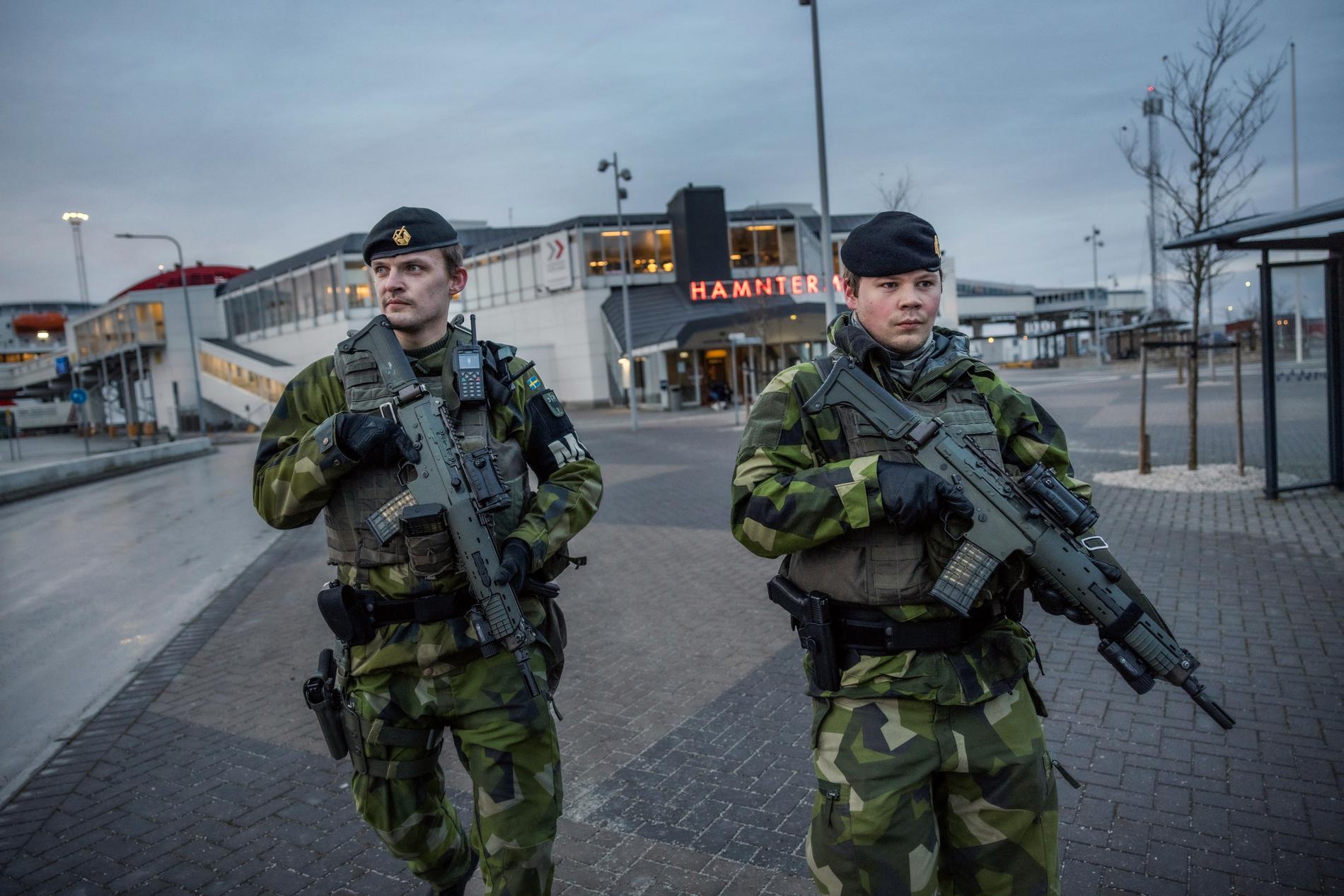
Swedish authorities continue to increase military preparedness in Gotland on Saturday. The professor at Sweden’s Defense College believes that the Russians’ demonstration of their power in the Baltic Sea is aimed at Swedish cooperation with NATO.
The small town of Visby on Gotland has in recent days become a strategic point in Sweden’s territorial defense.
Below the harbor, several tanks rolled in while heavily armed soldiers patrolled the streets.
After six Russian warships sail into the Baltic Sea, the Swedish authorities are ramping up their military readiness.
“It’s a little annoying, that’s it,” Visby resident Jollivi tells Aftonbladet.
– Not only because the army comes here, but because the world situation is the way it is, she continues.
Climbing the stairs in Gotland
A military transport plane carrying more than 100 Swedish soldiers landed on Friday in Visby, Gotland. In addition to soldiers, there will also be several military mechanisms to the island.
On Saturday, a ferry arrived at the port of Visby with further military reinforcements. The city’s redevelopment was met with mixed reactions from the residents.
This escalation comes a week after several ominous batches from the Russian side.
On Wednesday, three Russian warships sailed in the Baltic Sea through the Danish Strait, and on Friday night raised their number to six warships. On Friday, the websites of the Ukrainian authorities were subjected to a large-scale cyber attack. “Fear and expect the worst,” the hackers wrote.
No one has claimed responsibility for the attack yet, but many experts suggest that Russia is behind it.
– Obviously, there are risks. An attack on Sweden, as we say in the Riksdag’s overall defense decision, cannot be ruled out. Defense Minister Peter Hultqvist said on Saturday: We have a tense situation that is not good in Europe today as the European security system is being questioned.
Except for Swedish membership in NATO
One of Russia’s demands is that NATO provide a guarantee that it will not include new member states in the alliance, something that NATO has flatly rejected.
Sweden’s National Assembly decided a little over a year ago that the government should offer an option that would give Sweden the opportunity to join NATO if they so desired.
But Defense Minister Peter Hultqvist denies that Sweden has plans for this time.
– He said that if, in a tense political-security situation, one begins to formulate oneself in new ways about how one wants to deal with the military freedom of the Alliance, then it creates question marks and is on a slippery slope.
– denotes strength
A professor at Sweden’s Defense College, Kjell Engelbrecht, leaves little doubt about what the escalation of the armed forces in Gotland is all about.
– The main thing is to show Sweden’s will to defend. There should be no doubt that Sweden will defend any part of its territory, says the researcher who considers transatlantic security one of his main areas.
Gotland is strategically located in the Baltic Sea and gives the Swedish Armed Forces a good overview and an opportunity to control what is going on in the region.
The researcher believes that the fact that Russia is sailing six warships is mostly about leaving a mark.
“I’m not sure they want any confrontation, but they demonstrate that they have the opportunity to do so,” says Engelbrecht.
It is also believed that which ships used can tell something about the message from the Russian side
The landing ship is a symbol of the conquest of a territory. It cannot be a coincidence that half a dozen of these appeared in the Baltic Sea.
NATO membership
The professor says that there is a connection to the Swedish and Finnish NATO cooperation in the situation in the Baltic Sea.
“Through its membership in the European Union, Sweden has committed to increasing military assistance to member states,” Engelbrecht says.
It also notes that in the Swedish National Assembly there is almost a majority for Sweden’s membership in NATO.
“Russia will indicate that it will not accept any interventions or reinforcements, and will persuade countries such as Sweden and Finland not to allow NATO reinforcements in those areas,” Engelbrecht said.
He considers marking in the Baltic region primarily a Russian intimidation tactic, and believes that the Gotlanders have no reason to worry.
– He says that the readiness to move along the Russian-Ukrainian border is highly uncertain.

“Organizer. Social media geek. General communicator. Bacon scholar. Proud pop culture trailblazer.”

